How to Choose the Right Geothermal Energy System for Your Home
Geothermal energy is a renewable energy source that generates power and heat by harnessing heat from the earth’s core. This energy is environmentally friendly, long-lasting, and has a minimal carbon imprint. Because of its multiple advantages, geothermal energy systems are becoming increasingly popular for home usage.
The efficiency of a geothermal energy system is one of its primary advantages. When compared to typical systems, these systems may save up to 70% on heating and cooling expenditures. They also outlast typical HVAC systems, need less maintenance, and are quieter. Geothermal energy systems are also good for the environment because they don’t create damaging greenhouse gases.
It is critical to select the correct geothermal energy system for your house in order to achieve optimum efficiency and cost savings. The size of your home, the temperature in your location, and the kind of soil on your property can all have an effect on the operation of your system. Working with a trained technician who can analyze your home’s needs and offer the finest system for you is essential.
Table of Contents
Factors to Consider When Choosing a Home Heating System
When it comes to selecting a home heating system, there are a number of aspects to consider. Here are a few of the most important:
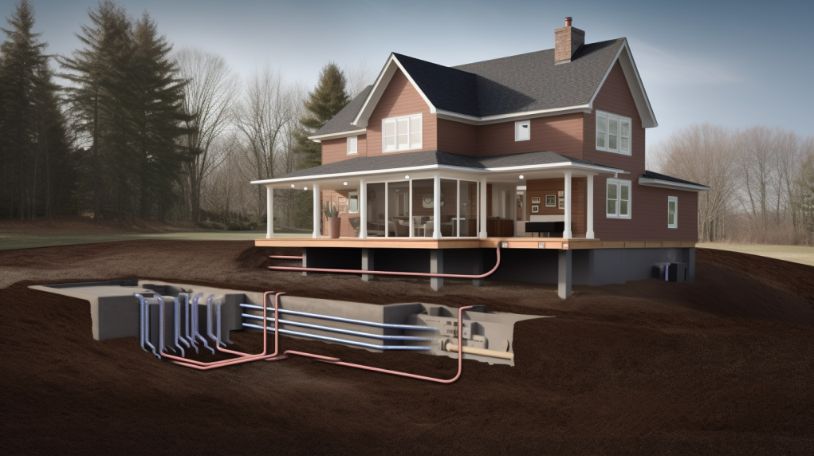
Home Dimensions
When selecting a heating system, one of the most crucial aspects to consider is the size of your home. If you have a large house, you will need a system that can properly heat the entire room. If you have a smaller house, though, you may be able to get away with a lesser system.
Land Area Available
If you have a lot of property, you should think about installing a geothermal heating system. These systems, which use the earth’s natural heat to heat your home, may be incredibly efficient. They do, however, need a substantial quantity of land to be installed.
Your Local Climate
Another significant element to consider is the climate in your location. If you reside in a colder region, you will want an efficient heating system. If you reside in a warmer environment, you may be able to get by with a less powerful system.
System Effectiveness
The system’s efficiency must also be considered. A more efficient system will consume less energy, saving you money on your utility costs. Look for systems with high AFUE ratings (Annual Fuel Utilization Efficiency).
Your Financial Situation
Finally, your budget is a crucial factor to consider. Heating systems may be costly, so you must select a system that works within your budget. Keep in mind, though, that a more expensive system may be more efficient and so save you money in the long term.
By taking these aspects into account, you can select a heating system that keeps your house warm and pleasant while also being efficient and cost-effective.
Types of Geothermal Energy Systems
Geothermal energy is a sustainable energy source that derives its heat from the earth’s center. It is a clean and sustainable energy source that may be utilized for heating and cooling. To capture this energy, many types of geothermal energy systems are employed. This article will go through the four major types of geothermal energy systems.
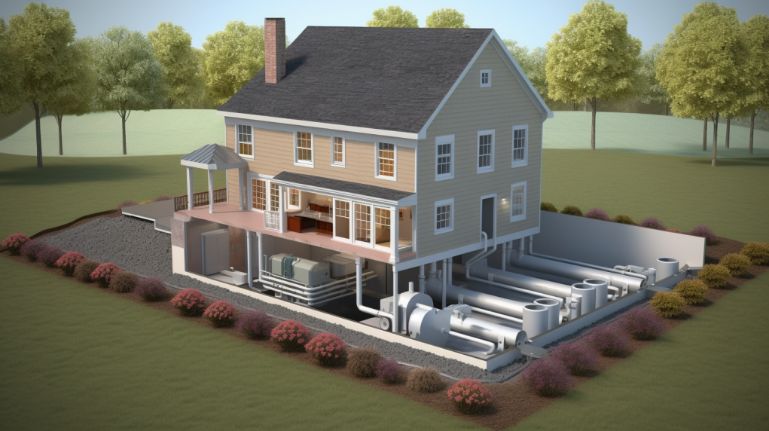
System with an open loop
A direct-use system is another name for an open-loop system. It is the most basic and least expensive sort of geothermal energy system. Water is pumped from a well into a heat exchanger in this system, where the heat is recovered and used for heating or cooling. The water is subsequently dumped into a body of fresh water or a drainage system.
System with a closed loop
A ground-source heat pump system is another name for a closed-loop system. It is a more complicated system that circulates a heat transfer fluid via a closed loop of pipes. The fluid collects heat from the ground and sends it to a heat exchanger for heating or cooling. The fluid is then recirculated into the earth to absorb further heat.
System with a horizontal closed loop
A horizontal closed-loop system is a form of closed-loop system that is put in the ground horizontally. It is appropriate for places with enough room for pipe installation. The pipes are buried 4-6 feet deep and are linked to a heat pump.
Closed-loop vertical system
A closed-loop vertical system is a form of closed-loop system that is implanted in the ground vertically. It is appropriate for regions where there is limited room for pipe installation. The pipes are put in boreholes dug into the ground and are linked to a heat pump.
Finally, geothermal energy systems are a great source of sustainable energy that may be utilized for heating and cooling. The sort of system employed is determined by the available area and the unique demands of the structure.
Choosing the Right System
There are various aspects to consider when selecting a geothermal heating and cooling system for your house. Here are some important things to remember:
Factors to Think About:
- Climate: Your geothermal system’s effectiveness will be affected by the climate in your location. In colder areas, a bigger system may be required to keep your house warm throughout the winter.
- Soil type: The kind of soil on your property might have an impact on the installation procedure as well as the performance of your system.
- Available space: Because geothermal systems require subterranean loops, you’ll need enough acreage to accommodate the system.
- Budget: While geothermal systems are more expensive to install than typical HVAC systems, they can save you money over time.
Benefits and Drawbacks
There are various types of geothermal systems to select from, each with its own set of benefits and drawbacks:
- The most prevalent form of geothermal system is a horizontal loop system. They are quite simple to install and may be utilized in a wide range of soil conditions. They do, however, take up a lot of area and may not be suited for smaller residences.
- Vertical loop systems cost more to install but take up less area than horizontal loop systems. They are an excellent choice for residences with limited space.
- Pond/lake loop systems are appropriate for homes that have a body of water nearby. They are extremely efficient, but they are more expensive to install than other systems.
Adjusting the System to Your Environment
To select the best geothermal system for your house, you must first examine the size and demands of your property. A geothermal energy expert can advise you on the ideal system for your house depending on considerations like as square footage, insulation, and climate.
Consultation with an Expert
Finally, consulting with a professional is the best approach to select the proper geothermal system for your home. A geothermal energy expert can evaluate your property and assist you in
Installation
There are usually fees associated with installing anything. The same is true when installing new household equipment or appliances. Installation charges vary based on the type of equipment or appliance being installed. A new air conditioning unit, for example, might cost anywhere from $3,000 to $7,000. Before making any selections, it is critical to examine the installation prices.
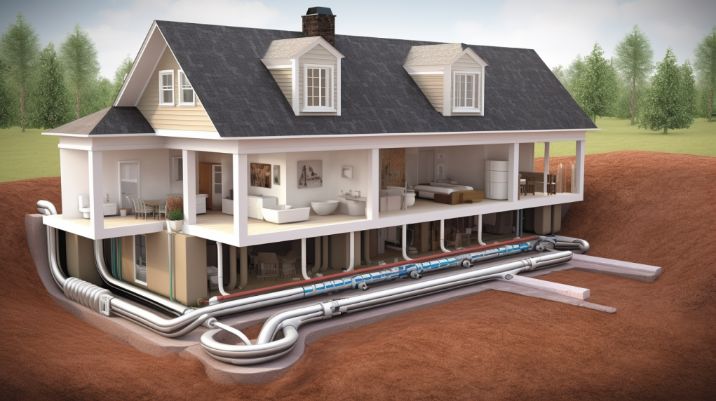
When installing new equipment or appliances, permits and regulations must also be considered. There may be licenses and rules that must be followed depending on where you reside. Before commencing the installation procedure, it is critical to investigate these requirements and secure the appropriate licenses.
Potential problems might develop during installation, particularly if you attempt to install the equipment or appliance yourself. It is critical to be aware of these possible problems and to have a plan in place to deal with them. For example, if you’re installing a new air conditioner, you can run into problems with the electrical wiring or the ductwork. It is critical to have a specialist on hand to deal with these concerns.
When it comes to pros, it is strongly advised that you engage one to manage the installation procedure. This is especially true if you have never installed equipment or appliances before. A professional will have the expertise and skills to deal with any problems that may develop during the installation procedure. They may also guarantee that the installation is done appropriately and safely.
Finally, installation might be a complicated procedure including expenses, permits, restrictions, and potential difficulties. It is critical to investigate these issues and select an expert to manage the installation. This ensures that the installation is done accurately and safely, and that your new equipment or appliance will work well for years to come.
The Importance of Regular Maintenance
Regular maintenance is essential for maintaining the condition of your house or car. Neglecting maintenance can result in costly repairs and possibly dangerous situations. Routine maintenance allows you to detect minor concerns before they become severe difficulties.
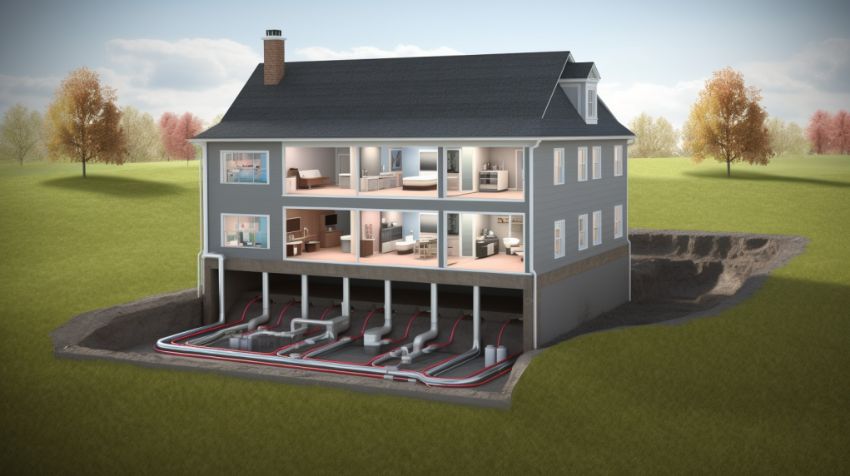
Potential Maintenance Costs
While regular maintenance may appear to be a waste of money, it can really save you money in the long term. Neglecting maintenance might lead to more costly issues in the future. For example, forgetting to replace your car’s oil might result in engine damage that can cost thousands of dollars to fix.
DIY Maintenance Suggestions
You can perform numerous easy maintenance activities on your own to maintain your home or car in good shape. For example, replacing the air filter in your HVAC system or cleaning your home’s gutters can help you avoid costly damage. When undertaking DIY maintenance, make sure to observe all safety precautions and consult a professional if you have any questions.
Professional Maintenance Scheduling
While DIY maintenance can be beneficial, many jobs should be left to the pros. HVAC and electrical systems, for example, should be examined and maintained by competent personnel. It is critical to schedule frequent maintenance visits with trained personnel to ensure that your systems are running correctly and that any possible concerns are identified before they become big issues.
Finally, routine maintenance is critical for maintaining your house or car in good shape. You may save money and avoid costly repairs by completing routine maintenance and arranging expert inspections. Always observe safety precautions and seek the advice of a professional if required.
Final Thoughts
Finally, when shopping for a new energy system for your house, remember the advantages of geothermal energy. It is not only a renewable and ecological energy source, but it may also save you money in the long term.
It is critical to consider your unique demands as well as the size of your property when selecting a geothermal energy system. Consulting with an expert can assist you in determining the optimal system for your needs.
Choosing geothermal energy benefits not only your house, but also the environment. Geothermal energy emits no greenhouse gases and has no environmental impact.

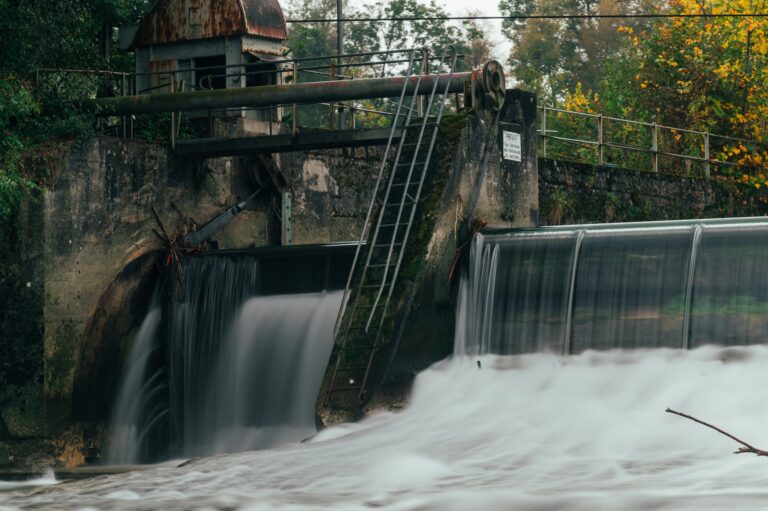
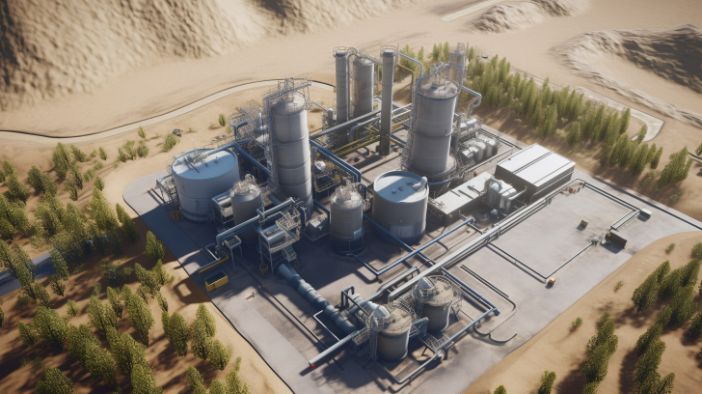



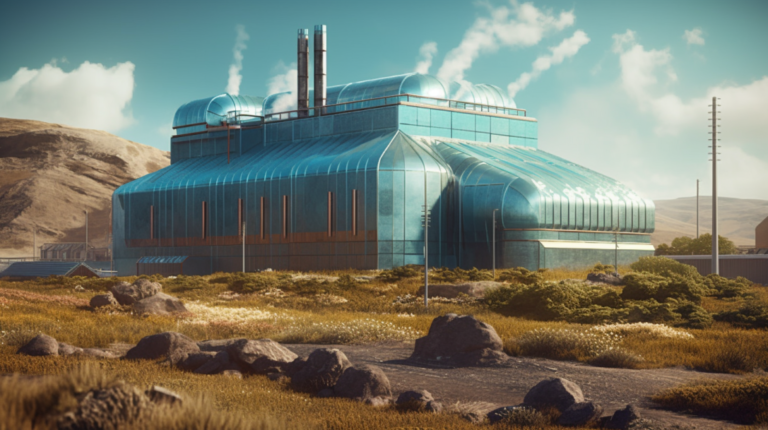
3 Comments